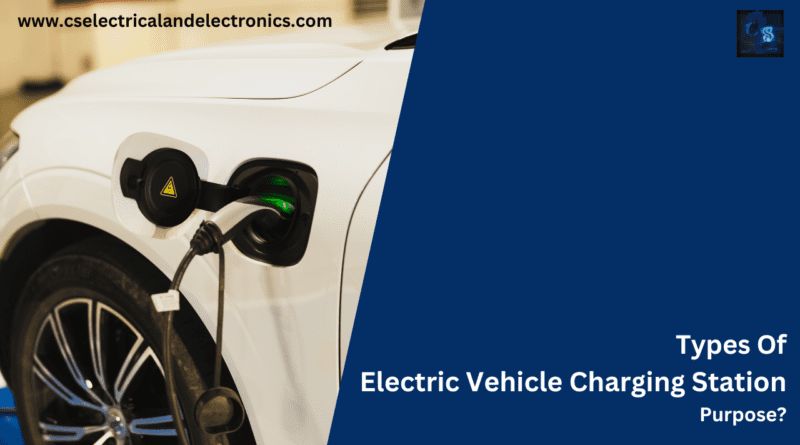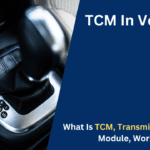Types Of Electric Vehicle Charging Stations, Different Levels
Hello guys, welcome back to our blog. Here in this article, we will discuss the types of electric vehicle charging stations, different levels of charging stations, and which one is better to charge an electric vehicle.
If you have any electrical, electronics, and computer science doubts, then ask questions. You can also catch us on Instagram – CS Electrical & Electronics.
Also, read:
- Types Of Testing Done After Software Development
- How Does Bike Airbag System Work, Bike Airbag Benefits
- Top 15 PCB Designing Companies In India In 2023
Types Of Electric Vehicle Charging Stations
A piece of technology used to charge electric vehicles is known as an EV charging station. A charging unit and a power source, such as a wall socket, a Level 2 charging station, or a DC fast charging station, make up a charging station in most cases.
Electricity from the power source is delivered to the vehicle’s battery by the charging unit, which is linked to the vehicle. The battery can now store energy and supply the power required to drive the car through this procedure. The type of charging station being used, its wattage, and the battery capacity of the car will all affect how long it takes to charge.
Electric vehicle charging stations come in a variety of designs, including Level 1, Level 2, and DC rapid charging stations. The slowest method of charging, level 1 uses a regular household outlet and can take up to 24 hours or longer to fully charge an EV.
Depending on the size of the battery pack, level 2 charging, which uses a 220-volt outlet, can take anywhere between 4 and 12 hours to fully charge an EV. The fastest method of charging currently available, DC fast charging employs a direct current (DC) charger and can charge an electric vehicle (EV) from 0% to 80% in as little as 30 to 60 minutes.
For many EV owners, the accessibility of charging stations is crucial because it affects where and when they may charge their vehicles. Public charging stations are available from a number of charging network providers in convenient places including shopping malls, parking lots, and rest areas. There are additional alternatives for home charging stations that may be put in a private dwelling, and many firms provide workplace charging stations for their staff.
Overall, electric vehicle charging stations are an important part of the expanding infrastructure for electric vehicles and are necessary to make sure that EVs can be charged and utilized in a practical and easy way.
Types Of Electric Vehicle Charging Stations
Electric vehicle (EV) charging stations generally fall into one of three categories:
01. Level 1 Charging: The slowest charging method is level 1, which uses an ordinary household plug. Given that it can take an EV up to 24 hours or longer to fully charge, it is mainly utilized for emergency charging or as a backup charging option.
02. Level 2 Charging: A 220-volt outlet, which is typically found in homes, businesses, and public charging stations, is used for level 2 charging. Depending on the size of the battery pack, this sort of charging, which is quicker than Level 1 charging, can take anywhere between 4 and 12 hours to fully charge an EV.
03. DC Fast Charging: The fastest charging method is known as direct current (DC) fast charging, and it utilizes a DC charger. An electric car can be charged quickly—in as little as 30 to 60 minutes—by using a DC fast charger. However, because the charging rate slows down to safeguard the battery, charging the remaining 20% of the battery pack may take much longer.
There are a few subtypes of charging stations in addition to these primary categories, including:
01. Combined Charging System (CCS): A Level 2 AC charger and a DC fast charger are combined to create the CCS fast charging system. It supports both Level 2 charging at a slower pace using an AC charger as well as fast charging with a DC fast charger.
02. Tesla Superchargers: A private fast-charging network called Tesla Superchargers was created by the company, particularly for its electric automobiles. They employ a unique charging system that is incompatible with those used by other EVs.
03. CHAdeMO Charging: A group of Japanese automakers established the quick charging standard known as CHAdeMO. It is a DC quick charging device that works with a variety of EVs, including Nissan and Mitsubishi models.
In general, your choice of EV charging station will be based on your own preferences and the particular requirements of your electric vehicle. Finding charging choices that meet your needs, whether you’re charging at home, at work, or while on the move, is getting simpler thanks to the charging infrastructure’s continuous evolution.
Here are a few more details that may be helpful:
01. Port Types: It’s critical to confirm that your electric vehicle (EV) is compatible with the type of charging port being utilized because different charging stations employ various charging port types. The most popular port types for EV charging are CHAdeMO, CCS, and J1772 (Level 1 and Level 2 charging) (DC fast charging).
02. Charging Network Providers: There are numerous businesses that offer EV charging networks and stations. Tesla, ChargePoint, EVgo, and Blink are a few of the biggest companies that offer charging networks. These businesses provide a range of charging choices, such as DC fast charging, Level 1 and Level 2 charging, and they frequently offer mobile apps that let you find and use their charging stations.
03. Public Charging Stations: Public charging stations are those that may be used by the general public and are often found in handy places like parking lots, rest areas, and shopping malls. Any EV owner is welcome to use these charging stations, which are frequently a part of a wider charging network offered by a charging network operator.
04. Home Charging Stations: Residential charging stations, or “home charging stations,” are those that are installed and utilized for overnight charging. Home charging stations are primarily Level 2 charging stations, but there are DC fast charging options that may be installed in a garage or other specific charging location.
05. Workplace Charging Stations: Workplace charging stations are those that have been established and are utilized for charging throughout the workday. Workplace charging stations are frequently a component of an employer-provided workplace charging scheme and are normally Level 2 charging stations.
06. Charging Time: An EV’s charging requirements and the type of charging station being utilized will both affect how long it takes to charge. The slowest sort of charging, Level 1, for instance, can take up to 24 hours or longer to fully charge an EV. Depending on the size of the battery pack, level 2 charging, which is quicker, can fully charge an EV in 4 to 12 hours. The fastest method of charging is DC fast charging, which can charge an EV from 0% to 80% in as short as 30 to 60 minutes.
Overall, there are numerous possibilities for EV charging, and the best station to use will depend on your individual requirements and those of your EV. Finding charging choices that meet your needs is getting simpler whether you’re charging at home, at work, or while you’re on the road thanks to the continuously changing charging infrastructure and the growing accessibility of faster-charging technologies.
Well, here are a few more details about electric vehicle charging:
01. Charging Speed:
The type of charging station, its wattage, and the battery size of the car are a few of the variables that affect how quickly electric vehicle charges. For instance, Level 1 charging, which is the slowest sort of charging and requires a regular household outlet, can take up to 24 hours or longer to fully charge an EV. Depending on the size of the battery pack, level 2 charging, which uses a 220-volt outlet, can take anywhere between 4 and 12 hours to fully charge an EV.
The fastest method of charging currently available, DC fast charging employs a direct current (DC) charger and can charge an electric vehicle (EV) from 0% to 80% in as little as 30 to 60 minutes.
02. Charging Cost:
The price of power in your location, the kind of charging station you use, and the cost of the charging network or service are just a few of the variables that will affect the cost of charging an electric vehicle. For instance, using a Level 2 charging station at home will often cost less than using a public charging station, however using a DC fast charging station would usually cost more than using a Level 2 station.
03. Charging Distance:
Many EV owners take the charging range of their vehicles into consideration because it affects how far they can go between charges. The size of the battery pack, the amount of energy the car uses, and the road conditions will all affect how far an EV needs to be charged. For instance, an electric car with a smaller battery pack will be able to charge more quickly than one with a larger battery pack.
04. Charging Time Optimization:
Some electric cars come equipped with built-in charging optimization tools that let you control charging time and rate to extend battery life and improve driving efficiency. For instance, some EVs have the option to slow down charging when the battery is almost full to improve battery performance or to plan to charge for off-peak times when electricity is less expensive.
Overall, there are a lot of things to think about when it comes to charging an electric car, and deciding which charging method is best for you and your EV will depend on your individual requirements. Finding charging choices that meet your needs is getting simpler whether you’re charging at home, at work, or while you’re on the road thanks to the continuously changing charging infrastructure and the growing accessibility of faster-charging technologies.
This was about “Types Of Electric Vehicle Charging Stations“. I hope this article may help you all a lot. Thank you for reading.
Also, read:
- 10 Tips To Maintain Battery For Long Life, Battery Maintainance
- 10 Tips To Save Electricity Bills, Save Money By Saving Electricity
- 100 (AI) Artificial Intelligence Applications In The Automotive Industry
- 100 + Electrical Engineering Projects For Students, Engineers
- 1000+ Control System Quiz, Top MCQ On Control System
- 1000+ Electrical Machines Quiz, Top MCQs On Electrical Machines
- 1000+ MATLAB Simulink Projects For MTech, Engineering Students
- 50 Tips To Save Electricity At Home, Shop, Industry, Office
Author Profile
- Chetu
- Interest's ~ Engineering | Entrepreneurship | Politics | History | Travelling | Content Writing | Technology | Cooking
Latest entries
 All PostsApril 29, 2024Top 11 Free Courses On Battery For Engineers With Documents
All PostsApril 29, 2024Top 11 Free Courses On Battery For Engineers With Documents All PostsApril 19, 2024What Is Vector CANoe Tool, Why It Is Used In The Automotive Industry
All PostsApril 19, 2024What Is Vector CANoe Tool, Why It Is Used In The Automotive Industry All PostsApril 13, 2024What Is TCM, Transmission Control Module, Working, Purpose,
All PostsApril 13, 2024What Is TCM, Transmission Control Module, Working, Purpose, All PostsApril 12, 2024Top 100 HiL hardware in loop Interview Questions With Answers For Engineers
All PostsApril 12, 2024Top 100 HiL hardware in loop Interview Questions With Answers For Engineers








